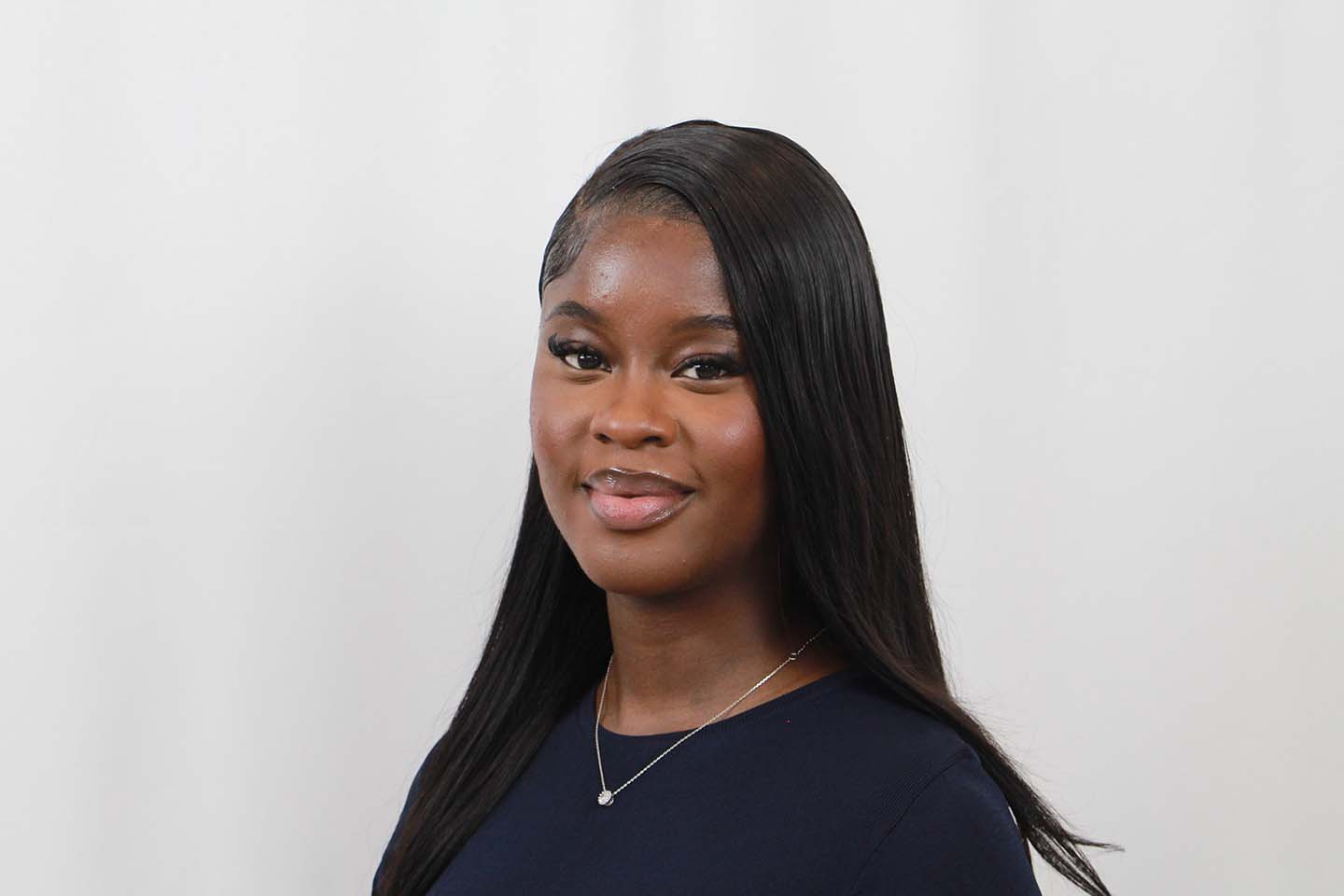UTM alumna’s rewarding experience in academia was animated by engaging both within and beyond the classroom.
Debra Olaniyi knew from a young age she would work in the field of law. However, even with this defined path, getting actively involved in the broader UTM community while pursuing her undergraduate degree inspired her to diversify her studies.
“I started to take other courses because that’s what school is about – you try different things until something sticks,” says Olaniyi.
“And, if you’re in the position where you’re able to, it’s very important you try different paths.”
At UTM Olaniyi fueled her interest in politics to expand her knowledge on how government structures influence social institutions and switched her major in her first year to combine political science with sociology and a minor in women and gender studies.
A critical aspect of her undergraduate experience was also about extending beyond coursework: she joined the Black Students Association as an Events Coordinator, where she says she ultimately found her community on campus.
Olaniyi was subsequently introduced to several other campus organizations, including Caribbean Connections and the Black Literature Club. Feeling underrepresented by academic societies, Olaniyi became the President of the African Student Association, intent on providing professional development opportunities for Black students on campus.
“Being part of the African Student Association was a huge highlight of my experience on campus,” says Olaniyi.
“I felt that I was able to give back, mending the gap between professional development and Black students on campus.”
In response to growing job scarcity concerns during the COVID-19 pandemic, Olaniyi spearheaded the annual Black Professionals Panel and organized regular interactive career events and workshops.
Olaniyi also became a student member of U of T’s Anti-Black Racism Task Force, an initiative introduced by the university to identify and address the barriers Black students face, where she jointly provided several recommendations to the University of Toronto, including improving representation within staff and faculty positions, providing black-centred spaces for students, and offering accessible grants for students of colour.
Capturing the experiences of the black community was crucial for this group: Olaniyi says that she drew on her own lived experience as a Black person, but also appreciated and considered various insights for a broader and multidimensional perspective.
“With the term ‘BIPOC,’ we tend to jumble up many intersecting identities, which have their own distinct issues,” says Olaniyi.
“Even within the black community, everyone experiences things differently.”
Olaniyi has continued her community involvement in law school and beyond.
As an Associate Manager at the Federation of Black Canadians, Olaniyi is focused on supporting young black professionals. In 2022, she developed the organization’s anti-Black racism toolkit, ‘The Black Pulse:’ an educational resource for Black students to access supports and for employers to have guidelines for instilling equity, diversity and inclusion policies in the workplace.
Olaniyi also oversees a team of four in Calgary, Alberta, for a student support learning program that helps students achieve their academic goals across Canada; plus she manages a financial literacy program to connect Black entrepreneurs with helpful industry resources.
Olaniyi, who has a summer placement at Bookman Law, says her foundation in research-based studies at UTM coupled with the practical skills she has cultivated in law school, have better prepared her for working in the legal field.
Her best advice to current students is to be open to constructive feedback, start networking, and get involved in research and volunteering where possible.
On this point, she continues to walk the walk: while in her final year of law school at the University of Leicester, Olaniyi will serve there as the President of the Pan-African Law Society, and she is reasserting her mission to mend the gap and add her perspective.
“The law is changing to reflect the people it serves, but there are still a lot of areas to be fixed – there are so many intersections of identities that you need to be in this space,” says Olaniyi.
“No one can advocate for you or your community if your voice is not at the decision-making table.”

